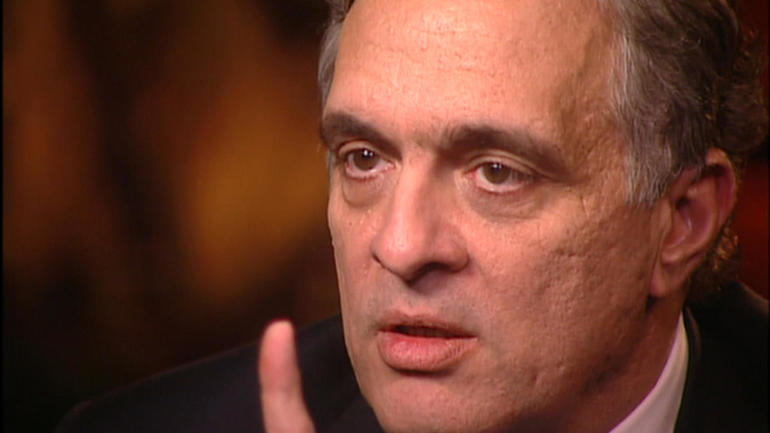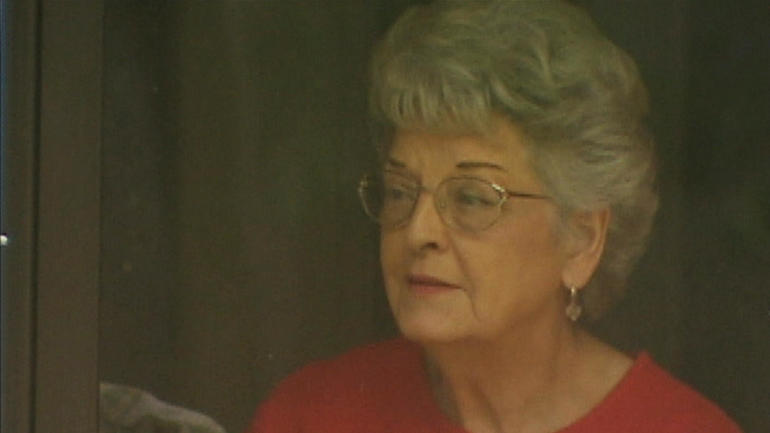This season, 60 Minutes celebrates its 50th season on the air, making it the longest-running news broadcast in primetime.
Executive producer Jeff Fager writes about the broadcast in his book Fifty Years of 60 Minutes, detailing behind-the-scenes moments since its inception under creator Don Hewitt.
“60 Minutes took a while to catch on,” Fager writes, “but Don’s invention changed television news for good. Together he and his team built a broadcast that succeeded beyond anyone’s expectations, including his own, and eventually earned him the respect he sought from the now-elderly Murrow Boys.”
The broadcast this week looks back at some of the highs—and the lows—from all 50 seasons. Here, a few correspondents talk about the stories that stand out to them.
During his time at 60 Minutes, correspondent Scott Pelley has reported more than 300 stories, but one stands out in his mind: interviewing former CIA director George Tenet.
Sworn in as Director of the CIA during President Bill Clinton’s term in 1997, Tenet served at the helm of the intelligence agency before and after September 11th and during the run up to the war in Iraq. But he had never done a television interview.
“He had been criticized mercilessly and had never said a word in response,” Pelley explains in the video below. “So this first interview was his chance to respond to all of his critics over all of these years. And he came loaded for bear, particularly on the question of torture.”
Tenet was adamant: “We don’t torture people,” he told Pelley repeatedly during the interview.
“Of course, what we’ve discovered in documents that have been declassified is that people were tortured, [some] to death,” Pelley says.
During the interview, Tenet grew defensive when Pelley suggested that the phrase “enhanced interrogation techniques” was merely a euphemism.
“I’m not having a semantic debate with you. I’m telling you what I believe,” Tenet said, denying that anyone had ever died during the interrogation program.

Former CIA Director George Tenet
Though Tenet refused to acknowledge that torture was used under his watch, Pelley feels he did get a complete answer on one subject.
“I wanted to try to get to why these enhanced interrogation techniques were necessary,” Pelley says. “Or, in the words of others, why torture was necessary in the war on terror. And so I turned the conversation in that direction, and I got from Tenet what I considered to be the most complete answer from any official on why we resorted to these methods.”
“Because these are people that will never, ever, ever tell you a thing” Tenet told Pelley in response to that inquiry. “All I’m asking you to do, walk a mile in my shoes when I’m dealing with these realities.”
Before correspondent Ed Bradley passed away in 2006, he spoke in a 2005 interview about the 60 Minutes story that meant a lot to him: reexamining the murder of Emmett Till.
The Justice Department had reopened the almost 50-year case of Till, a 14-year-old black boy who was tortured and murdered in Mississippi in 1955 after he was accused of whistling at a white woman. The new investigation revealed that more than a dozen people may have been involved in Till’s murder and that at least five of them were still alive.
Bradley spoke to people involved in the case, including Till’s cousin Simeon Wright, who was 12 years old on that fateful day they went to Bryant’s Grocery Store and said he still remembered the sound of Till’s whistle. Bradley also included a documentarian’s interview with Till’s mother, who described what it was like to see her son’s maimed body.
Bradley said the story meant a lot to him.
“It was an interesting story for me because Emmett Till and I were the same age when he died,” Bradley explained. “And I lived a rather sheltered life growing up in Philadelphia in the North, and it was the first time that I had a real understanding of what life in the South could be like.”
In Bradley’s story, 60 Minutes found Carolyn Bryant, the woman at whom Till allegedly whistled. Bryant was a focus of the Justice Department’s new investigation, suspected of having assisted her husband Roy and J.W. Milan in Till’s abduction. She had since remarried and all but disappeared from public view until Bradley and his team found her, then age 70 and known as Carolyn Donham.
But Donham refused to open the door to 60 Minutes cameras. Her son confronted Bradley and demanded he leave the property.

Carolyn Donham, the woman Emmett Till allegedly whistled at, refused to come to the door, but 60 Minutes cameras were able to get a shot of her.
“I just took a few steps back and stood on the lawn of the people next door and continued to ask my questions,” Bradley recalled. “I wasn’t going to go away.”
Bradley would later win an Emmy for the report, which received favorable reviews after the two-part piece aired in 2004.
“It is to the credit of 60 Minutes … that the show can revisit an old story such as Till’s, blow dust off the files and still manage to shock the conscience about an enormous and ongoing injustice,” read a Chicago Tribune article.
In 2005, Bradley reflected on the fact that 50 years after the murder, no one had been held accountable.
“I think in a lot of cases, justice will catch up with you,” he said. “It doesn’t catch up with everyone. But in most cases, it will. And in some cases, particularly in the Civil Rights cases, you know, it takes years. It takes absolute years.”
In January 2017, Carolyn Donham gave her first interview to a historian who wrote a book about Till’s murder. She recanted the allegations she made during Till’s trial.
Every once in a while, a story captures 60 Minutes’ attention and holds it for years. One of those stories was correspondent Lesley Stahl’s profile of Rex Lewis-Clack, a little boy whose blindness and limited intellectual capacity existed alongside extraordinary musical talent.
Stahl, a piano player herself, first met Rex in 2003 when he was eight years old. She sat next to him on the piano bench and played four notes, which he immediately identified by their sound. She also watched as he repeated a Schubert impromptu just moments after hearing it for the first time and reminded the audience that he wasn’t reading music — he couldn’t even see the keys.
“He was a savant, a musical savant, of enormous talent,” Stahl says.

Rex at age 8
She decided to follow Rex as he grew up, checking in on him two years later, and again in 2008.
“He was just the most adorable little boy,” Stahl recalls. “He was precious. And the audiences in his concerts loved him. But you know, little kids aren’t so adorable when they grow up. And it becomes harder and harder for the parents as these savants reach maturity. And so we were trying to gently, gently, explain that to the public.”
As Rex grew, so did his talent, technique, and enthusiasm, all before the 60 Minutes cameras.
“And so that was a story, I think, people still remember,” Stahl says, “people who see me on the street to this day.”
The videos above were produced by Will Croxton and Brit McCandless Farmer. They were edited by Will Croxton.
Mamie Till interview courtesy of Keith Beauchamp
Editor’s Note: Jeff Fager’s book “Fifty Years of 60 Minutes: The Inside Story of Television’s Most Influential News Broadcast” is published by Simon & Schuster, a division of CBS.

